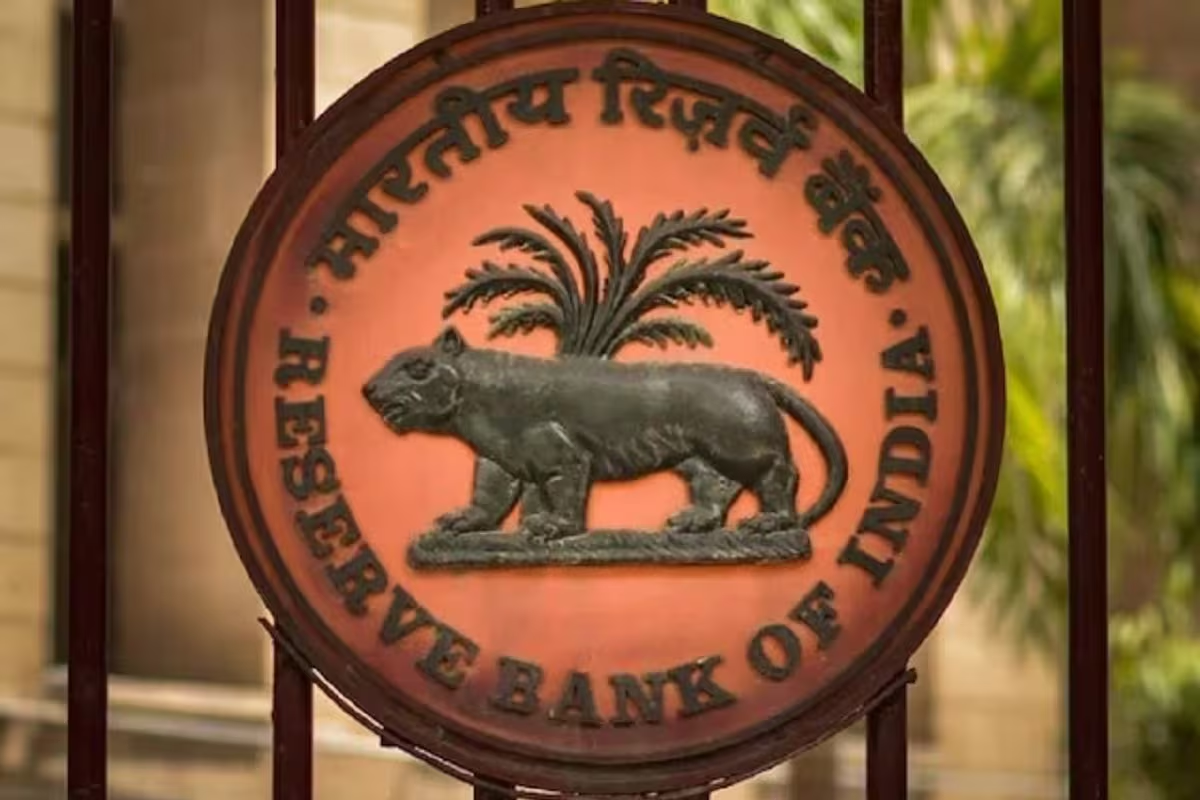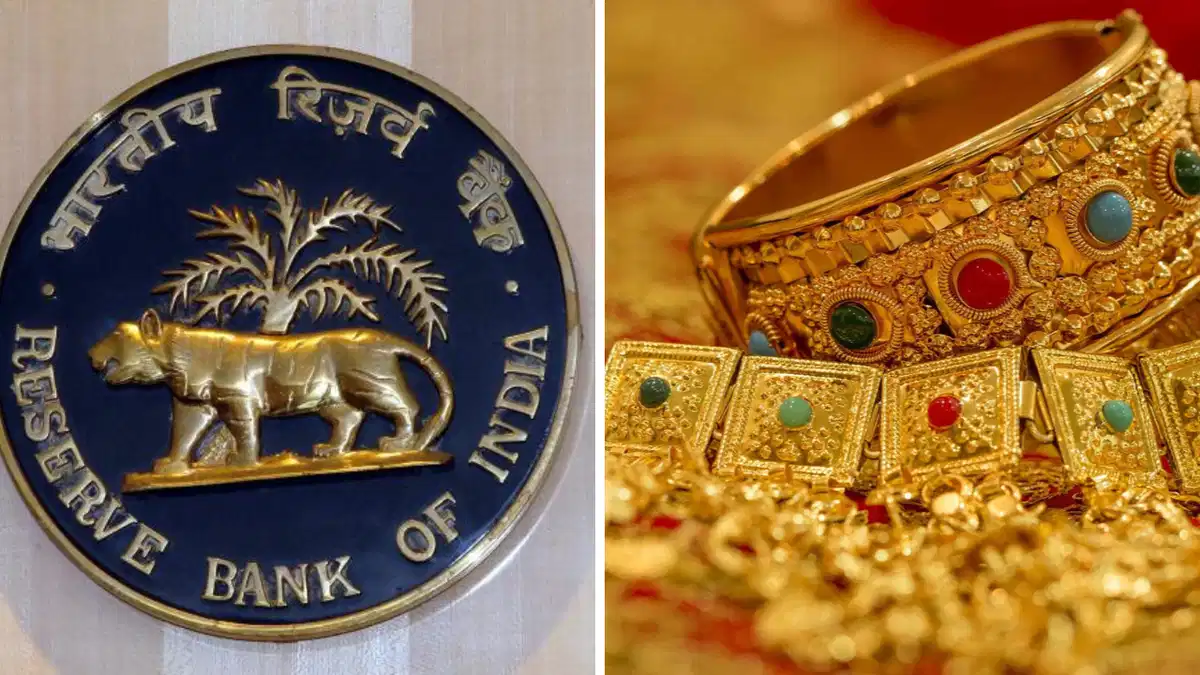The recent move by the Narendra Modi government to transfer 100 tonnes of gold from foreign banks to domestic vaults stirs memories of India's past economic struggles when the country had to pledge gold to survive.
In FY24, the Reserve Bank of India (RBI) shifted 100 metric tonnes of gold from the UK back home, marking the largest such transfer since 1991, when India pledged its gold to address a foreign exchange crisis.
Now, with this addition, India's total gold reserves reach 822 metric tonnes, with 413.79 tonnes still held abroad.

The 1991 Crisis: A Turning Point for India's Economy
What was the 1991 crisis?
- In January 1991, India confronted a grave economic crisis, grappling with the inability to finance its imports and repay its debts.
- The situation was further aggravated by the Gulf War, which led to a sharp increase in oil prices.
- At that time, India's foreign exchange reserves had dwindled to less than $1 billion, barely sufficient to cover three weeks of imports.
How did the government respond?
- In response, RBI Governor S Venkitaramanan, Finance Minister Yashwant Sinha, and other officials sought assistance from international financial institutions.
- Although the International Monetary Fund (IMF) provided $755 million, it fell short of what was needed.
What did the government do next?
- Facing fundraising challenges, the government considered borrowing from other central banks.
- After several discussions between the RBI and government officials, Venkitaramanan suggested amending the RBI Act to permit borrowing from entities other than central banks.
- With resistance to selling gold, a proposal emerged to lease gold confiscated from smugglers.
- This proposal received approval by March 1991.
But Rajiv Gandhi pulled the plug:
- The Congress party, which was supporting the minority Chandra Shekhar government, withdrew its support, alleging surveillance on its leader Rajiv Gandhi.
- They claimed that the Chandra Shekhar government had assigned a Haryana police constable to spy on Gandhi.
- The fall of the government led to a downgrade in India’s sovereign credit rating, further complicating efforts to raise funds.
The initial plan of pledging gold
- To avert a payment default amid a liquidity crisis, officials suggested pledging gold.
- During the election campaign, Yashwant Sinha approved the decision to mortgage the gold to UBS in Switzerland.
- By the end of May 1991, twenty tons of gold had been pledged, raising $200 million.
New pledge, economic reforms, and recovery
- The new government, led by Narasimha Rao with Manmohan Singh as Finance Minister, took office in June and continued to raise resources through gold pledging.
- In July, the RBI pledged 46.91 tons of gold to the Bank of England and the Bank of Japan, securing $400 million, which was repurchased later that year.

RBI's Gold Reserves as of March 2024
-
Total Gold Reserves: In March 2024, the Reserve Bank of India (RBI) holds a significant amount of gold, totaling 822.10 metric tonnes. A considerable portion of this precious metal is kept in foreign reserves.
-
Distribution of Gold: Previously, India stored some of its gold reserves with the Bank of England, a practice common among nations. However, recent transfers have increased India's domestic gold holdings to over 408 metric tonnes, nearly equalizing the split between local and foreign reserves.
-
Breakdown of Gold Holdings: According to the RBI's fiscal year 2024 annual report, a substantial portion of the gold reserves, approximately 308 metric tonnes, serves as backing for issued currency notes. Additionally, 100.28 metric tonnes are held domestically as assets of the banking department. The remaining gold, around 413.79 metric tonnes, is stored abroad.

Reasons for Storing Gold Abroad
-
Historical Context: India's decision to store gold with the Bank of England dates back to the 1990-91 foreign exchange crisis when part of the country's gold reserves was pledged to secure a significant loan. Although the loan was repaid by November 1991, logistical considerations led the RBI to maintain some gold in the UK.
-
Practicality and Flexibility: Storing gold overseas offers practical advantages, enabling easier trading, participation in swaps, and opportunities for earning returns. Additionally, purchasing gold from international markets is facilitated by having storage arrangements abroad.
-
Risk Considerations: Despite the benefits, storing gold internationally carries inherent risks, particularly during times of geopolitical tension. Recent events, such as the freezing of Russian assets by Western nations, have raised concerns about the safety of assets held abroad. Consequently, the RBI's decision to repatriate gold from the UK may reflect a response to these heightened geopolitical risks.

How RBI Shifted its Gold from UK to its Vault?
-
Extensive Logistical Exercise: Returning gold to RBI’s vault required meticulous planning, precise execution, and close coordination among various stakeholders, including the finance ministry, RBI, and governmental departments, along with local authorities.
-
Customs Duty Exemption: To import the precious metal into India, RBI had to secure a customs duty exemption, with the Centre forgoing revenue on this sovereign asset. However, integrated GST (goods and services tax) was applicable on imports, as it is shared with the states.
-
Security Arrangements: Special measures were taken to ensure the safe transportation of the bulk quantity of gold back to India, including the use of a dedicated aircraft and robust security arrangements.

How RBI’s Gold Reached UK?
-
Overseas Gold Reserves: More than half of RBI’s gold reserves are securely held overseas, primarily with the Bank of England and the Bank of International Settlements. Approximately one-third of the reserves are stored domestically.
-
Latest Data: As of March 31, 2024, RBI's gold reserves totaled 822.1 tonnes, with 413.8 tonnes held overseas.

What RBI Will Do with its Gold Reserves?
-
Managing Local Gold Prices: The RBI, in consultation with the government, can utilize domestically held gold to regulate local gold prices, particularly to meet the demand for investment products like gold exchange-traded funds.
-
Increased Gold Purchases: The RBI has significantly escalated its gold acquisitions, purchasing 1.5 times more gold in the first four months of 2024 compared to the previous year. This uptick is attributed partly to diminishing confidence in dollar assets among central banks globally.
-
Diversification Strategy: In FY24, RBI augmented its gold reserves by 27.47 tonnes, continuing a broader strategy to diversify foreign exchange reserves, hedge against inflation, and mitigate currency volatility.

Why shifting gold from UK helps RBI?
-
Cost Efficiency: Moving gold from the UK to its own vaults allows RBI to cut storage costs previously incurred at the Bank of England. According to a report by the Times of India, an official stated that this move was prompted by a periodic review of storage locations and the accumulation of gold stock overseas.
-
Domestic Storage: The gold will now find its place in RBI's vaults, primarily located in Mumbai's Mint Road and Nagpur. This shift not only aligns with RBI's broader strategy of consolidating its gold reserves but also ensures better oversight and accessibility.
-
Logistical and Strategic Considerations: RBI's decision reflects a multifaceted approach to managing its gold reserves. By diversifying storage locations and bringing a portion of its gold holdings back to India, RBI aims to mitigate logistical risks and enhance its ability to respond to evolving market dynamics and geopolitical uncertainties.
The decision to repatriate gold from the UK to India serves both economic and strategic purposes for the Reserve Bank of India, marking a proactive step in optimizing its gold reserves management.
With inputs from agencies
Image Source: Multiple agencies
© Copyright 2024. All Rights Reserved Powered by Vygr Media.

























